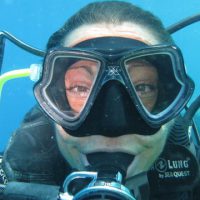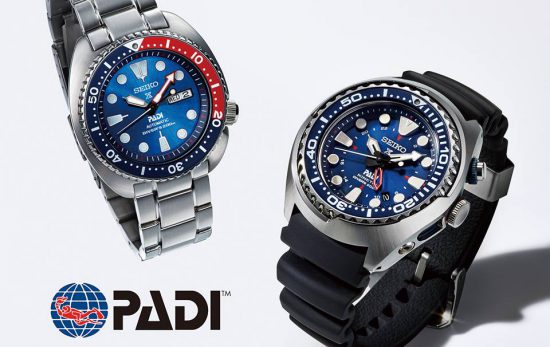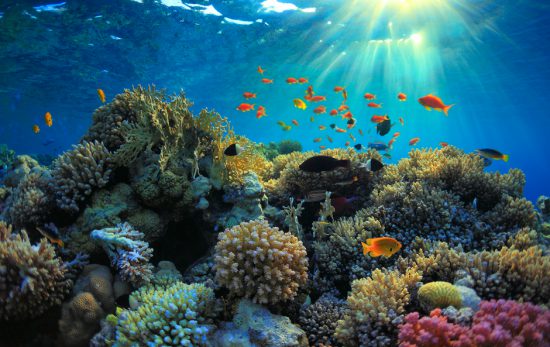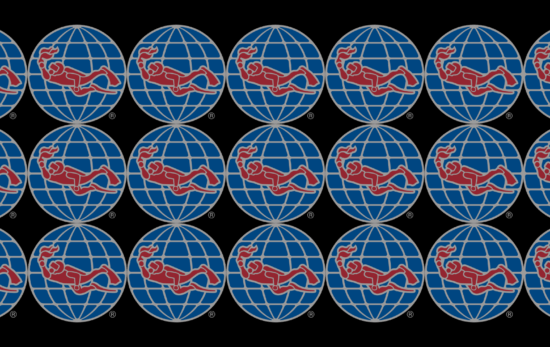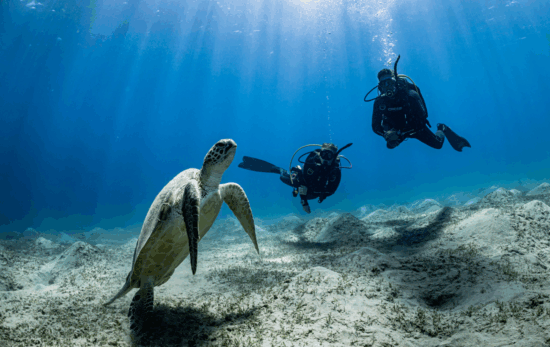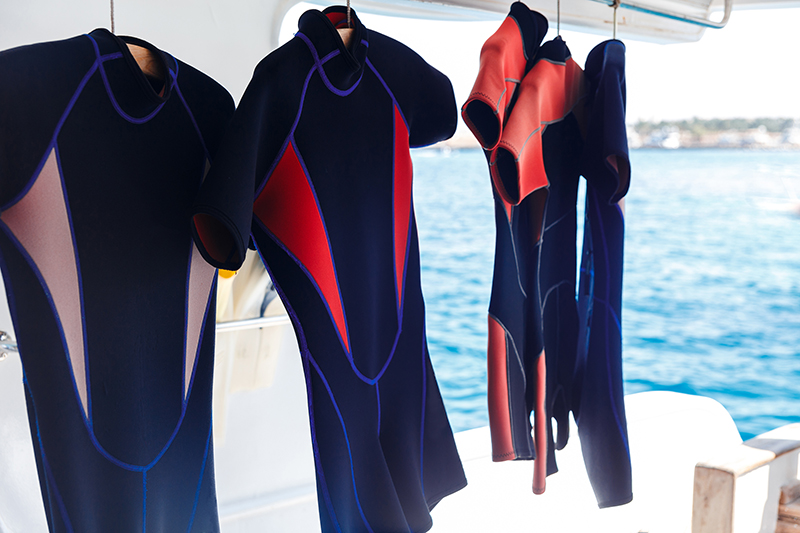
When it comes to buying your own scuba diving gear it can be difficult to know when you should buy and what you should buy. Here are some guidelines as well as pros, cons and suggestions for both new divers and experienced divers to help you navigate your way around the dive store!
Is it necessary for me to buy scuba diving gear?
Usually it is not necessary to own any of your own scuba gear to start diving or to go on diving trips. However, in some remote areas and on liveaboards (which have limited space for storing gear) you may be required to have at least your own basics – mask, snorkel, fins and wetsuit.
So why buy scuba diving gear if I can rent?
There are numerous positives to owning your own gear, here are the main ones:
- Comfort and Fit: When you buy your own gear you’ll take some time trying on different sizes and styles to get the item that is most comfortable for you. This is important – a badly fitting rental BCD or leaking mask can really take away from your diving enjoyment.
- Safety through Familiarity: When you have your own gear you get familiar with it, you know exactly where everything is which increases safety – your SMB is in the same pocket as it always is; you know where your alternate air source is and it’s easy to locate other accessories.
- Long Term Saving: Depending on where you are diving equipment rental prices can vary considerably. If you are doing a lot of diving then over a period time you can make a considerable saving to the point where, in some cases, your gear can pay for itself.
- The right item for the job: Some divers have certain gear requirements which may not be guaranteed if you are renting. For example, an underwater photographer may need large BCD pockets to store interchangeable wet lenses.
- Multi-purpose: Not all scuba diving gear is only for scuba diving. If you have your own mask, snorkel and fins you can pack them for any beach holiday; wetsuits and rash vests can be used for other water sports and many dive computers also include free-diving modes.
- Dive Computers: Each dive computer has different settings, buttons, menu, functions and algorithms. Trying to figure out a different model of rental computer each time you dive can sometimes be time consuming and frustrating. Having your own computer means you will get to know how it works and many computers record your dives and will link up to your laptop so you can transfer your logged dives instantly.
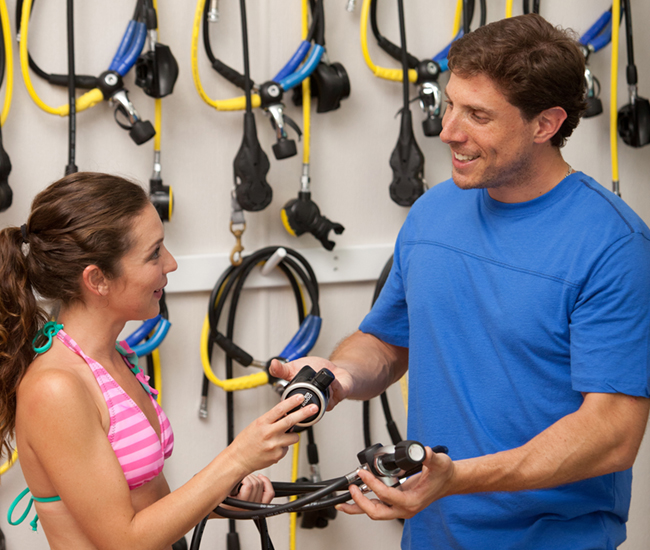
Okay, so what do you need to consider when purchasing gear?
- Taking it on holidays: If you are planning to dive on holidays then consider your baggage allowance. Some airlines will give an additional allowance for scuba gear – if they do not then you could be charged for excess baggage at the airport.
- Different Locations, Different Requirements: That 3mm shortie that you love may be great when you dive at home but what about when you travel to cooler waters?
- Servicing and Maintenance: If you have your own gear then you need to look after it and this extends beyond rinsing it after diving. Regulators need servicing and parts replacing periodically; dive computers need battery changes and BCD inflator hoses need to be cared for.
- Storage: You will need somewhere to store your gear at home when you are not using it. This should be somewhere cool and dry.
- Try Before You Buy: Here’s the kicker with diving gear, you can try it on in the shop but not in the water!
- Finances: There is no way around this one – buying a full set of gear can be a considerable investment but as we said earlier, it can pay for itself in the long term.
Confused? Here are some suggestions:
- When you rent gear ask to use different options during your stay so you can see which one is working best for you. If you find something you like make a note of the manufacturer and model. Ask if you can purchase it there or if they know where it is available.
- In the dive store, before you buy any item, take your time and try on plenty of different models – make it clear to the sales staff what type of diving you will be doing and what your requirements are.
- Think about where you will be diving and the type of diving. If you want to dive on holidays then consider travel BCDs which are light weight and roll up in your luggage. If you know you will be diving mainly at home and not moving around then a heavier duty BCD might be more suitable.
- When purchasing a mask remember that fit is everything, the best mask in the world will not work for you it doesn’t fit properly.
- If you are a “travelling diver”, buy a wetsuit combination that gives you several options for different water temperatures. A good 5mm wetsuit with a 3mm shortie covers most eventualities; the shortie for tropical water, the 5mm for temperate waters and the 3mm shortie over the 5mm for cooler waters.
- Ask about package deals in your dive store – many offer mask, snorkel and fin combos as well as regulator and BCD combos. These can reflect good savings but don’t buy something unsuitable just because of the price. Go to the store with a clear idea of your requirements such as single lens mask, big BCD pockets, integrated weights, computer free diving mode and open heel fins etc. This will help you stay on track and not get overwhelmed by too many choices. Take advice but remember what you need and want.
- Step by Step Purchasing: Keep it in mind that you do not need to buy a full set of gear. It’s easy with scuba equipment to gradually accumulate your set.
Safety First! Always make sure that you buy from a reputable dealer and follow any manufacturers’ instructions. If you’re keen to find your nearest PADI Dive Centre with a retail outlet, search the PADI Dive Shop Locator.
